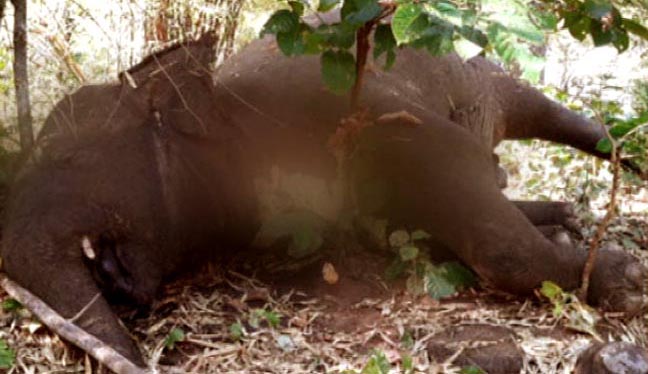Bhubaneswar/Karlapat: A team of experts visited Karlapat Wildlife Sanctuary in Kalahandi district Saturday to find out the cause of death of four elephants that died under mysterious circumstances in the last 12 days.
Also read: Odisha govt demands ‘central varsity’ status for Cuttack’s Ravenshaw University
Consecutive deaths of four elephants within a short span of 12 days in the sanctuary have been a matter of concern for environmentalists and animal lovers across Odisha.
Swinging into action, the state Forest Department sent an expert team to the protected area. A killer bacteria type is feared to be swarming through the forests of Karlapat sanctuary, an official said.
“A team from Centre for Wildlife Health of Odisha University of Agriculture and Technology (OUAT) Bhubaneswar will investigate the cause behind the deaths of the elephants and do the field analysis,” Kalahandi district forest officer (DFO) Ashok Kumar said.
Initially, anthrax was suspected to be a probable cause of consecutive elephant deaths in the sanctuary but it has been ruled out because the symptoms are completely different, the DFO added.
“Post mortem of the dead elephants have been conducted and report is awaited. Laboratory test of the first elephant conducted in OUAT revealed that it was due to Hemorrhagic Septicemia, an acute and highly fatal form of bacterial infection marked by fever, hyper-salivation, nasal discharge and difficult respiration. We have sent some samples to the Centre for Wildlife Laboratory to confirm the test report,” deputy director of Veterinary department in Kalahandi district Dharmananda Mohanty expressed.
On being contacted, the principal chief conservator of forests (PCCF) Sashi Paul said, “The test result of the first two elephants at the OUAT laboratory came out negative for anthrax. We suspect the infections likely happened from the elephants drinking the water contaminated by livestock in the nearby human settlements.”
On the other hand, water bodies in the area are being sanitised. Cattle in the nearby villages are also being vaccinated, in order to prevent any probable spread of the disease which is unknown so far.
Notably, the carcasses of two adult elephants were found at the Karlapat Wildlife Sanctuary Friday. Likewise, the carcasses of two more jumbos were found at the same spot February 1 and 8.
PNN
